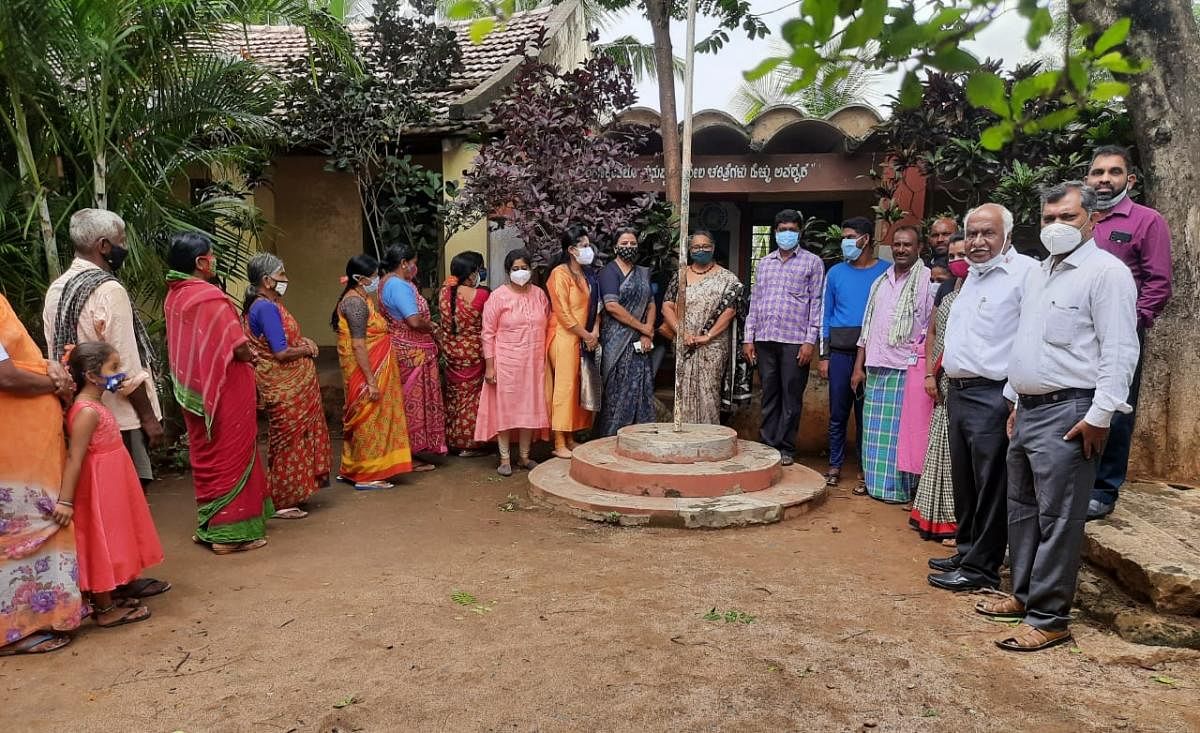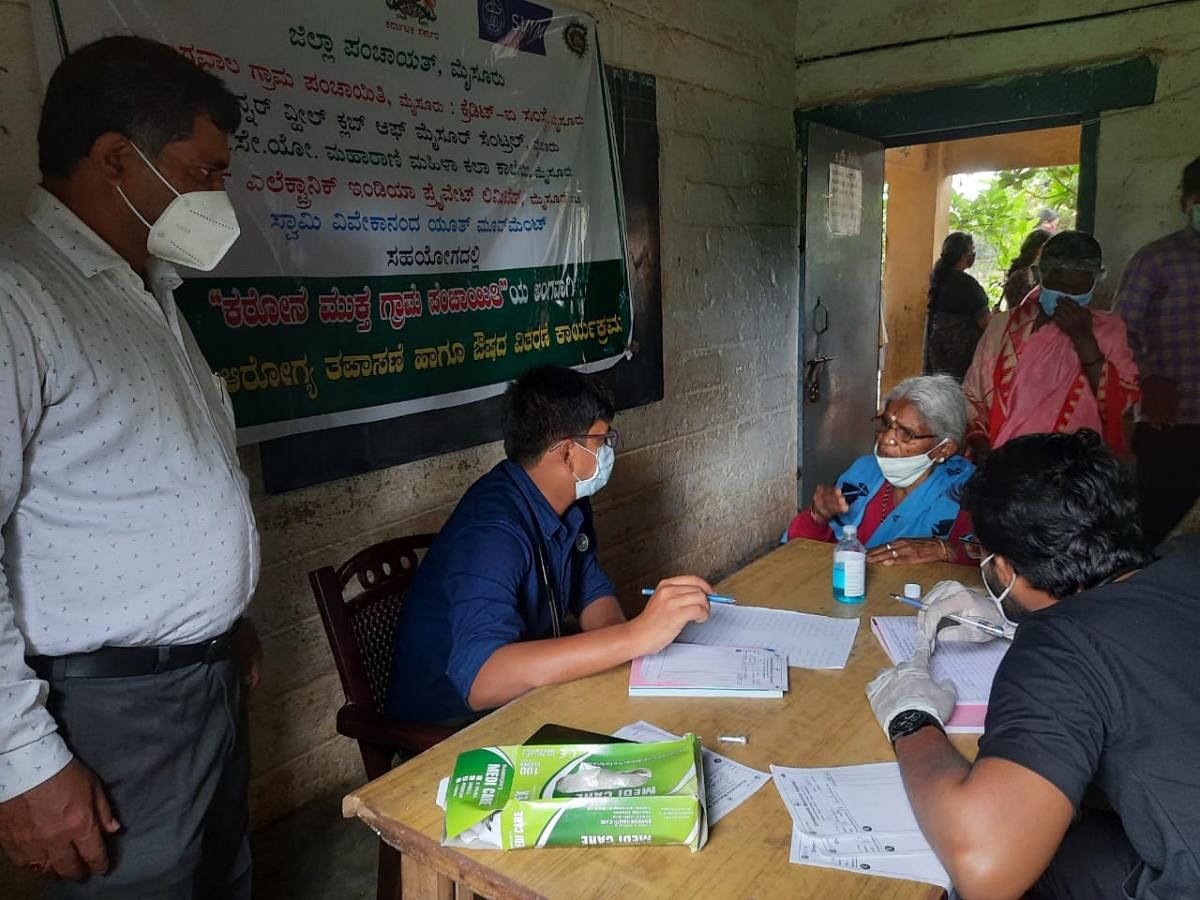

Just as the second wave of Covid-19 infections in Mysuru district started ebbing, villagers in Nagawala gram panchayat limits were not only preparing for a potential third wave but were also determined to keep the virus out of their villages.
Only two months ago, when the number of coronavirus infections were at an all-time high in the district, the virus had not spared even the villages.
Having lost close family members in the pandemic last year, Dr M P Varsha wondered what the situation might look like for people in resource-starved areas. “Mysuru had the second-highest number of cases in Karnataka at one point and I realised that there was no way that we could control the infection without looking to control the infection rates in villages,” he says.
This was when the Centre for Rural Education and Innovative Technologies of India (CREDIT-I), his organisation, came up with the idea of Covid-free gram panchayats. The aim then became to formulate integrated medical interventions, through which residents could be persuaded to take responsibility for their own health and keep their villages free of infections.
Active in five villages — Seegehalli, Hullahalli, Bommanahalli, Nagawala and Hosakamanakoppalu — the programme reaches about 8,000 people with the help of 11 volunteers and two coordinators. When the organisation first started out, there were 167 Covid cases in the community. But many others were reluctant to get tested or come forward when they had symptoms. Now, about a month and a half later, the number of positive cases are close to zero.
The work started with volunteers visiting 1,800 families door-to-door for a benchmark survey. Here, they recorded people’s co-morbidities, age group, vaccination status, and any observed symptoms. Once someone is identified as having Covid, they are either advised to quarantine at their homes or at an institution depending on the facilities available. “We also provide quarantine kits with medicines recommended by the government and masks,” Dr Varsha says.
Equally important as medical intervention are awareness programmes that build community resilience.
Arathi Ravikumar, a volunteer, recounts how there was a rumour going around of people dying spontaneously after getting vaccinated. “So many people in these five villages believed this, it was difficult to convince them otherwise,” she says. In such a situation, door-to-door visits and direct counselling can help people overcome their fears, she adds.
The volunteers even expound on the benefits of wearing masks, washing hands and avoiding large social gatherings.
Sudha M (45), a resident of Nagawala, was one such person who had fallen prey to the rumour, “After the volunteers talked to me and explained how the virus affects people and how the vaccination stops the virus, I am ready to get injected now. I have no fear,” she says.
The success of the programme in reaching out to people is also supported by the work of local leaders who take ownership of the initiatives. This was one of the reasons that Nagawala was chosen to try out this pilot project, says Dr Varsha. “When Covid-19 first started spreading in March last year, we welcomed ASHA workers and nurses to the villages and supported them in whatever way we could,” C Narendra, the Gram Panchayat President, says adding that they are always open to initiatives that would ensure the health of the villagers.
CREDIT-I also conducted five health camps in each of the five villages to treat co-morbidities. The camps helped build trust along with encouraging people to come forward if they started noticing symptoms. Explaining that these activities and the survey had provided them with essential information, Dr Shobha Rani, the Panchayat Development Officer (PDO) says that if there is a third wave, the panchayat is prepared for it.
“The survey has identified vulnerable categories according to age and co-morbidities. When we understand how the next wave is affecting people, we can try and protect the people that the virus is affecting the most,” she elaborates.
Before CREDIT-I began work in the community, explains Sudha, people did not know what to do if they got Covid. Many would often resign themselves to death. “Since this is a new disease, there is a lot of distrust and misinformation. It took us almost a month to overcome this, some people still have not come around and hide when they get Covid, but the community has come together,” says Ravikumar.
If there is no positive case for 21 days and if present positive patients test negative, a village can be declared Covid-free. Once the Nagawala panchayat is declared free of coronavirus, Dr Varsha thinks that the model can be replicated in other villages, “We need to take preventive measures to the people,” he iterates.